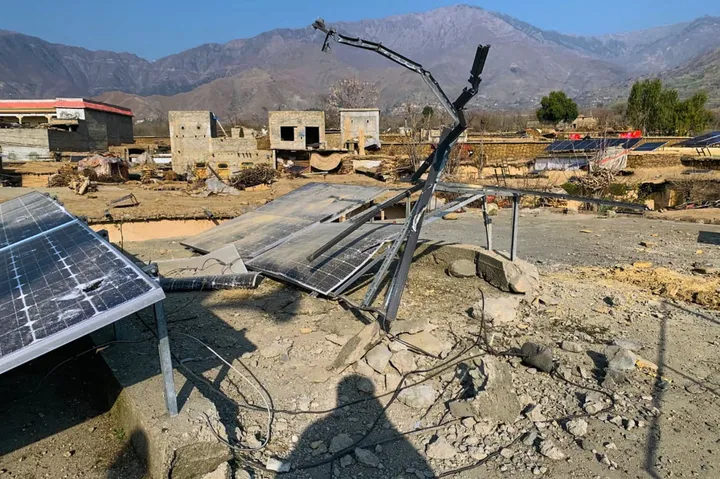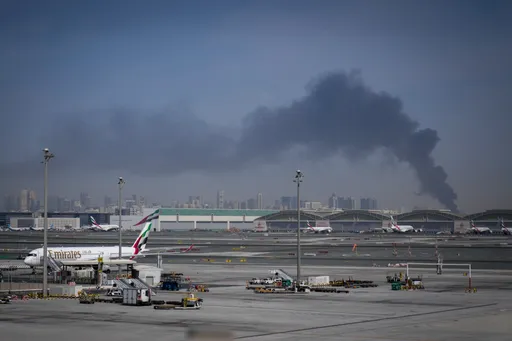Major Indian opposition parties have boycotted the opening day of Parliament’s budget session in solidarity with protesting farmers engaged in a 2-month standoff over new agricultural laws the government refuses to repeal.
The protests were marked by violence on Tuesday, India’s Republic Day, when tens of thousands of farmers riding tractors and on foot stormed the 17th century Red Fort in a brief but shocking takeover shown live on news channels. Clashes between the protesters and government forces left one protester dead and nearly 400 police officers injured.
India’s ceremonial President Ram Nath Kovind listed the government’s priorities in an address to Parliament. The budget is to be presented on Monday.
He described the violence as "unfortunate” and said people in a democracy are expected to respect the rule of law.
READ MORE:India hunts for farmer leaders over storming of Red Fort
A statement by the main opposition Congress party said 16 opposition parties boycotted the president’s address to Parliament "in full solidarity with the agitating farmers, whom the Modi government is trying to defame.”
Modi's party has 302 seats in the 545-member Lok Sabha, the more powerful lower house of Parliament that elects the prime minister and runs the government, and has 93 of the 245 seats in the upper house, or Rajya Sabha.
The boycotting parties have about 150 members in the lower house and 125 in the upper house.
19 arrested, 50 detained
After the violence, three smaller groups among more than 40 farmers’ organisations disassociated themselves from the protest. Police said they have arrested 19 protesters and detained 50 others for questioning under strict sedition and other laws, and leaders of the farmers were being sought for questioning.
People living near the farmers’ campsites on the outskirts of New Delhi also are demanding the farmers leave the area due to disruptions to their businesses and lives.
READ MORE:Indian farmers back at protest camp after deep challenge to Modi
Friday's protests
On Friday, about 300 people hurled stones at farmers camping in the Singhu area and uprooted some tents. They shouted slogans asking the farmers to go home. Police used tear gas to disperse them.
Traffic crawled on the outskirts of the Indian capital on Friday as authorities rushed hundreds of riot police to three of the campsites hoping to convince the farmers to go home.
They have vowed to stay until the laws are repealed, but talks with the government have been unsuccessful.
READ MORE:Angry farmers storm India's Red Fort in massive tractor rally
Farm protesters reinforce after standoff with police
Thousands of Indian farmers marched overnight to reinforce protesting colleagues camping out on the outskirts of the capital, New Delhi, to press the government to withdraw three new farm laws that they say will hurt their livelihoods.
In a stand-off between riot police and the farmers, authorities tried to clear a protest site in the city's east but most farmers refused to move and their leaders said any retreat would constitute surrender.
"Concerned over police high-handedness, thousands of farmers, who were not part of the protest, have now come to bolster our movement," Rakesh Tikait, president of one of the largest farmers unions, the Bharti Kisan Union, told Reuters on Friday.
Arguments over new agricultural laws
Prime Minister Narendra Modi's government introduced the new agricultural laws in September, triggering a wave of protests and sit-ins on some of the major approaches to New Delhi.
Farm leaders say the laws are an attempt to erode a longstanding mechanism that ensures farmers a minimum support price for their rice and wheat.
The government says the reforms will open up new opportunities for farmers and it says it will not bow to the protesters' demands.
Modi retains a solid majority in parliament although the protests are beginning to undermine some support for the government in the countryside and play on old loyalties.
Farmer leaders have accused authorities of acting at the behest of politicians affiliated with Modi's ruling Bharatiya Janata Party.
Union leader Tikait comes from a politically influential farming community in Uttar Pradesh, India's most populous state in the north. In several villages, members of the dominant Jat community will gather on Friday to support the protest.
The protest turned violent on Tuesday, when India celebrated its Republic Day with a military parade, when some protesters broke away from a procession of tractors to break through barricade and clash with police.
READ MORE:India to let protesting farmers into capital with tractors on Republic Day























